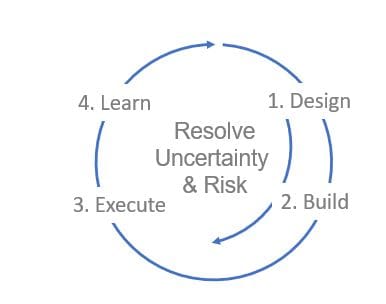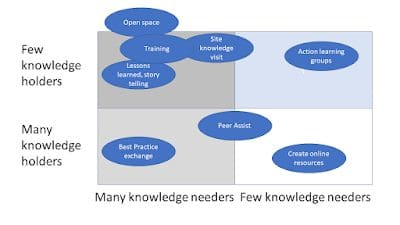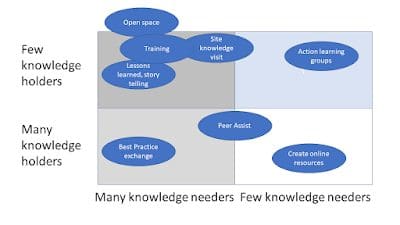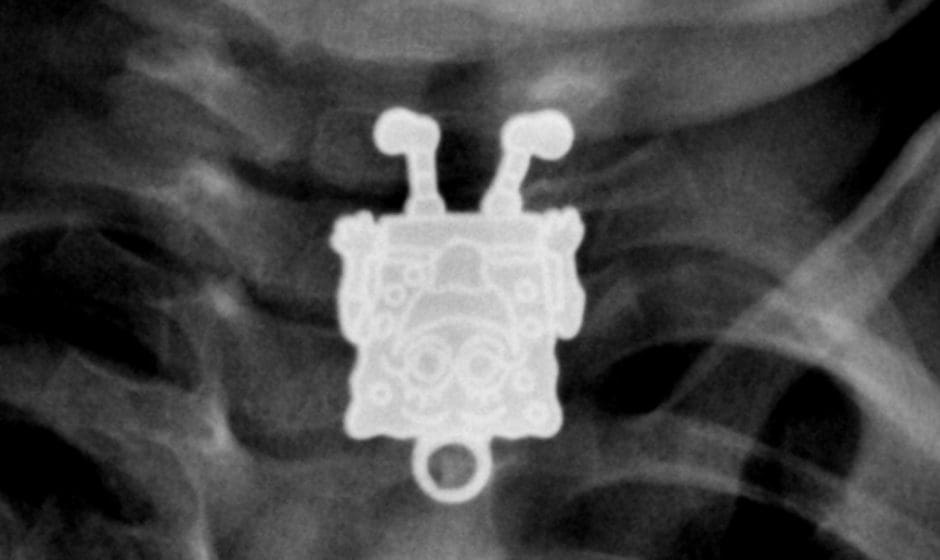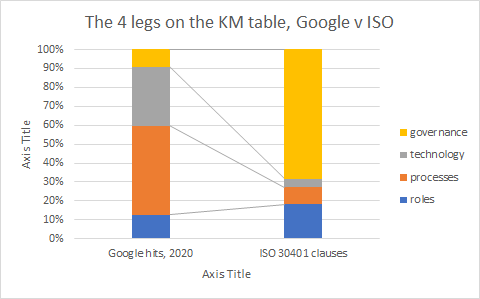
Favorite Effective learning within an organisation requires consistent and rigorous self-analysis, in order to pick up learning points and points of improvement. In Japan, this process is known as Hansei. Hansei, by Jim O’Neil, on Flickr Although alien to many in the west, Hansei is an important part of the
Read More
 Shared by Nick Milton March 4, 2020
Shared by Nick Milton March 4, 2020

Favorite KM in product development has its own set of principles. Here they are. The Exploratory Product Development Resolution Loopby Petepetey via Wikimedia Commons Kennedy, Harmon and Minnock’s excellent book “Ready, Set , Dominate” takes a knowledge-centred view of product development, inspired by practices of Toyota Motor Company and refined
Read More
 Shared by Nick Milton March 3, 2020
Shared by Nick Milton March 3, 2020

Favorite You want to plan a face to face event for your Community of Practice in order to transfer knowledge, but which event style do you select? This is a discussion I have been having recently, and it struck me that this might be a useful blog post. Now there
Read More
 Shared by Nick Milton March 2, 2020
Shared by Nick Milton March 2, 2020

Favorite You want to plan a face to face event for your Community of Practice in order to transfer knowledge, but which event style do you select? This is a discussion I have been having recently, and it struck me that this might be a useful blog post. Now there
Read More
 Shared by Nick Milton March 2, 2020
Shared by Nick Milton March 2, 2020

Favorite Transferring knowledge is like passing a ball – both the thrower and the catcher share accountability for an effective pass. Imagine an experienced practitioner transferring knowledge to a younger colleague or group of colleagues. Who is accountable for ensuring effective knowledge transfer? The answer is that the accountability is
Read More
 Shared by Nick Milton February 28, 2020
Shared by Nick Milton February 28, 2020

Favorite The Farnham Street blog (reporting on the book Mind Gym) describes nine tactics you can use to influence others, while making the point that ““it is essential that you understand the other person’s reasons so you can use tactics that will work to persuade them, as opposed to tactics that
Read More
 Shared by Nick Milton February 27, 2020
Shared by Nick Milton February 27, 2020

Favorite This reprised blog post is a reminder of that amazing example of free and open knowledge sharing that is Radiopaedia X-ray published in ABC news, taken from Radiopaedia As described in this fascinating article, Radiopaedia is an online wiki where Radiologists all over the globe share online X-rays that are interesting, unusual, or demonstrate
Read More
 Shared by Nick Milton February 26, 2020
Shared by Nick Milton February 26, 2020

Favorite The way that individuals remember is a small-scale analogue for Organisational Knowledge Management. Image from Wikipedia We acquire knowledge through experience or through learning; We store that knowledge in our short term memory; If we feel is has long term value, we transfer it to our long-term memory, where
Read More
 Shared by Nick Milton February 25, 2020
Shared by Nick Milton February 25, 2020

Favorite Who owns the knowledge in your head; you, or the company you work for? Image by Frits Ahlefeldt on Wikimedia Commons Instinctively most of us assume that we own the knowledge in our heads. It’s our head, so it’s our knowledge. A 2012 LinkedIn poll tested this question, providing
Read More
 Shared by Nick Milton February 24, 2020
Shared by Nick Milton February 24, 2020

Favorite A recurrent theme on this blog is to address “the 4 legs on the Knowledge Management table” – the four enabling elements of the Knowledge Management Framework (and indeed of any management framework) – roles, processes, technology and governance. Two days ago I published a quick exercise, looking at
Read More
 Shared by Nick Milton February 21, 2020
Shared by Nick Milton February 21, 2020
![]() Shared by Nick Milton March 4, 2020
Shared by Nick Milton March 4, 2020

